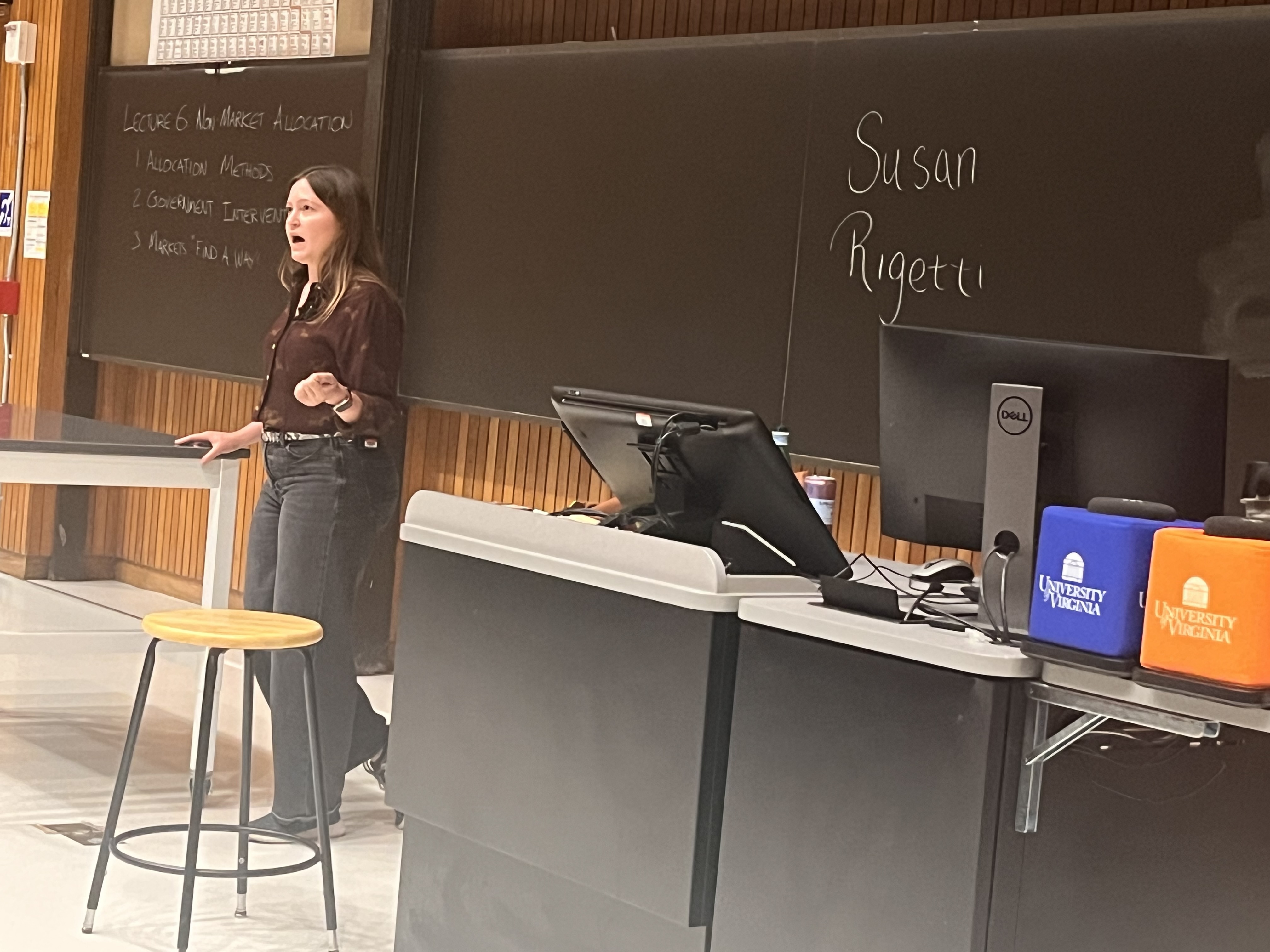
Susan Rigetti, the Silicon Valley whistleblower whose 2017 blog post revealed harassment at Uber and sparked calls for culture change, shared a powerful message with UVA Engineering students as part of the Engineering Character Strength Initiative: Sometimes doing the hard thing is the right thing.
“I never set out to be a whistleblower,” said Rigetti, a former software engineer. “I don’t think anyone really does.”
She credits the character-shaping experiences of her life with helping her make the momentous decision to tell her story and risk her professional career and credibility.
“I am thankful to Susan Rigetti for sharing her story with us and modeling what it means to demonstrate character strength in the workplace,” said Rosalyn W. Berne, the Anne Shirley Carter Olsson Professor of Applied Ethics and chair of the Department of Engineering and Society at UVA Engineering. “Her choices will have a lasting impact on Silicon Valley and the world.”
As one of the “Silence Breakers,” Rigetti was a 2017 Time Person of the Year. She is also the former technology op-ed editor of The New York Times, the author of a memoir, “Whistleblower,” and a novel, “Cover Story.”
Rigetti visited UVA’s School of Engineering and Applied Science as part of the Moments of Strength Speaker Series. The series is designed to inspire students with stories of how strong values and character help engineers live with integrity both personally and professionally.
Professor Coleen Carrigan introduced Rigetti at the event, noting, “It is not often in life that you get to meet your heroes, and tonight is one of those rare moments for me.”
Speaking Out Was the Only Choice
Rigetti’s story brought to life the ethical dilemma behind the headlines. She described sitting at her dining room table with a massive stack of documentation from her time at Uber, fact-checking every claim before publishing the now-famous blog post that described harassment at the tech company.
“I wanted so badly not to do it, not to publish it,” Rigetti said. But the experiences she and her colleagues faced, along with her own values, made her realize speaking out was the only choice.

Rigetti’s path to that moment was difficult. She had used education to escape the limits of her rural Arizona upbringing but left graduate school early after experiencing harassment and retaliation. She believes she learned a valuable lesson about standing up for herself and documenting what she had experienced — a lesson that would come in handy later.
After joining Uber, Rigetti said she experienced a company culture that consistently excused the bad behavior of high performers. She described circumstances in which she and other women who reported unprofessional behavior were ignored and even penalized. She believes that the forced arbitration agreements employees signed when they joined the company also contributed to a culture of silence.
After multiple attempts to prompt action, Rigetti ultimately realized she couldn’t ignore the simple truth: She and her colleagues were suffering personal and professional consequences, and someone had to speak out.
If everyone is quiet, what kind of world is that? But if you speak up, that’s such a different world. You have the power to make that world.
That idea is ultimately what led Rigetti to publish her blog post. And afterward, what surprised her most was not the backlash, but the overwhelming response from people who recognized similar patterns in their own industries.
“Her courage to share her story and her name had a snowball effect,” Carrigan said. “It inspired people around the world to do the same.”
Since then, legislation has also been passed to help prevent the use of forced arbitration agreements and nondisclosure agreements to silence reports of harassment.
Advice for Students
Rigetti urged the student audience to resist the tendency toward pragmatism when faced with an ethical dilemma.
“No one will ever tell you to do the right thing when it’s difficult,” she said. “You have to be the one asking yourself constantly, ‘Is this the right thing to do?’”
As Rigetti reminded the students, the consequences of courage can be severe — but the consequences of silence are worse. Silence and complicity become the culture when good people stay quiet.
“I’m going to tell you to do the thing that is terrifying, but that you know is the right thing to do,” Rigetti said. “You have to be the one who says, ‘I’m not okay with this.’”